Dr Kai-Fu Lee on the advancement of AI
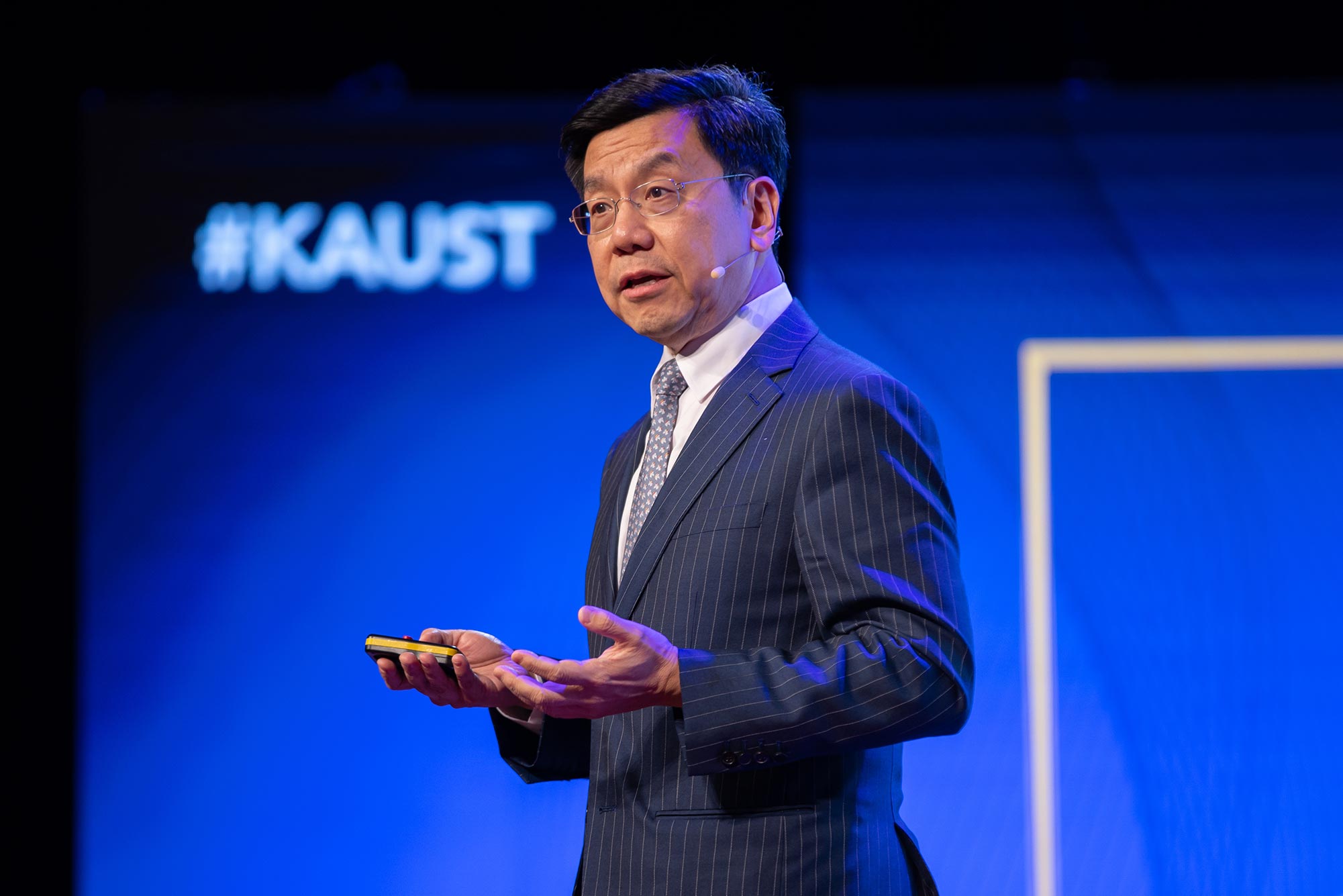
Dr. Kai-Fu Lee delivered a lecture at KAUST on Monday, March 28, 2022. His talk was titled: How AI Will Transform the World.
If it isn’t already, artificial intelligence (AI) will soon begin to touch almost every facet of our lives.
Arguably the defining development of the 21st century so far, AI has transformed the way in which we all work and live. Indeed, it carries the potential to achieve everything from unprecedented wealth generation, revolutionizing medicine and education through human-machine symbiosis, and creating brand new forms of communication and entertainment.
It was against this backdrop that Dr. Kai-Fu Lee, Chairman and CEO of Sinovation Ventures and President of Sinovation Venture’s Artificial Intelligence Institute, delivered a lecture at KAUST, which is spearheading a pioneering Artificial Intelligence Initiative led by Professor Jürgen Schmidhuber.
“Jürgen is one of the leading thinkers in AI… and a key example of GCC countries drawing talent from Europe and the US,” says Dr. Lee, speaking to us on his visit to KAUST.
“I'm sure everyone here knows you live in paradise,” he adds. “I do not use the word paradise lightly. I've been to many campuses of old tradition, and it moves you to see the architecture, building, the tradition… but I think this environment is even more conducive. I'm most impressed by the fact that KAUST faculty members have ample funding without having to take precious time going through the bureaucratic processes, which often happens in other countries.
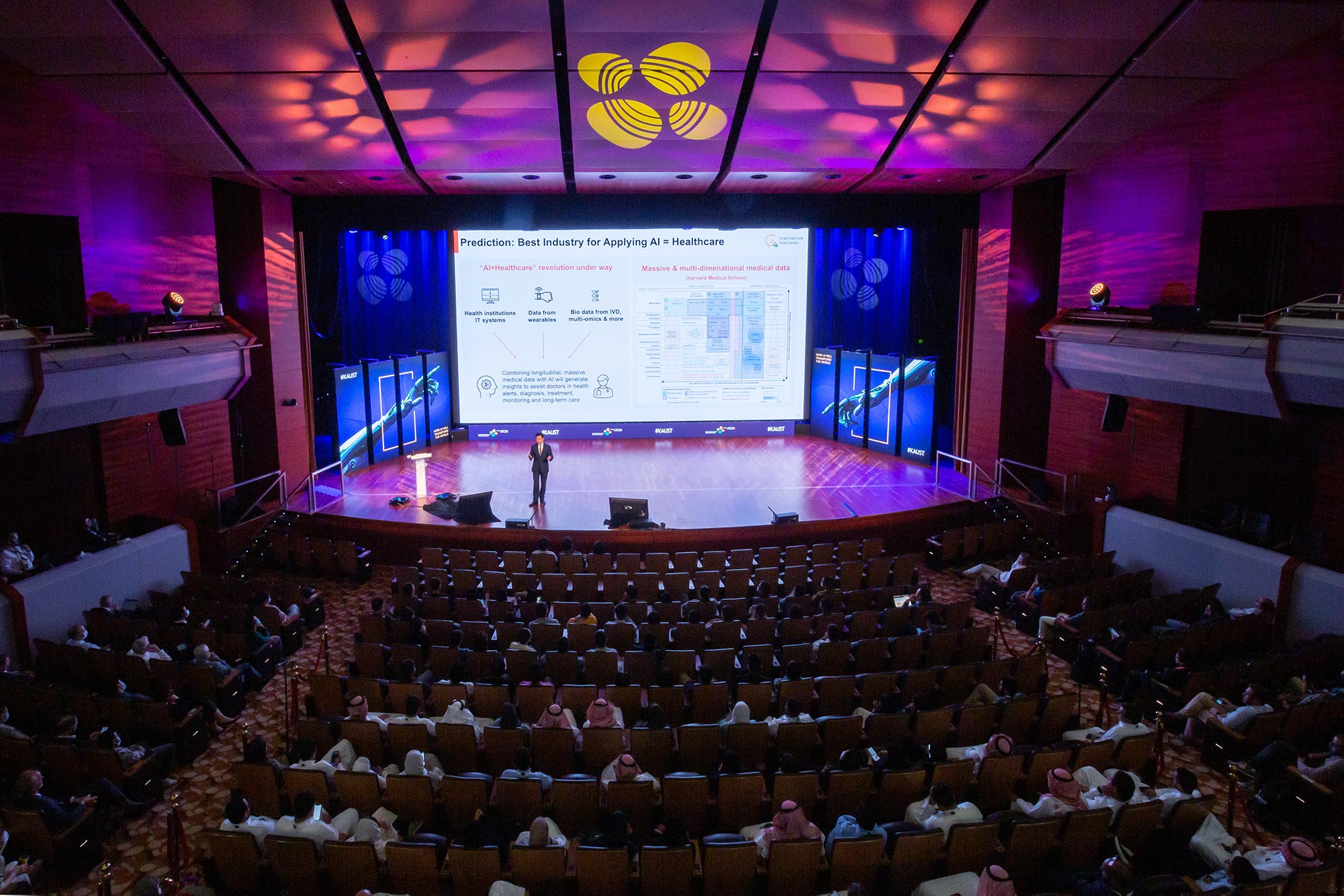
Dr. Lee is Chairman and CEO, Sinovation Ventures and President, Sinovation Ventures Artificial Intelligence Institute.
“This is a place where the intellectual capacity is really free to blossom, where people are given the resources they need. Smart people attract more smart people, and people have the audacity to dream about changing the world.”
AI will spearhead a new technological revolution
Having been in artificial intelligence research, development and investment for more than 30 years, Dr. Lee himself has enjoyed a career that continues to reach and impact huge numbers of people. His blog in China, for example, has more than 50 million followers.
An authority better placed than most to comment on the technologies shaping our future, Dr. Lee believes we are on the cusp of a wave of inventions and innovation that will reshape the future of human society. He compares the current backdrop to that of the early 1900s, when electricity, the combustion engine and radio waves paved the way for those industries that define our lives today.
In his new book, AI 2041, Dr. Lee highlights 20 technologies, but identifies AI as one of a few carrying the greatest transformative potential.
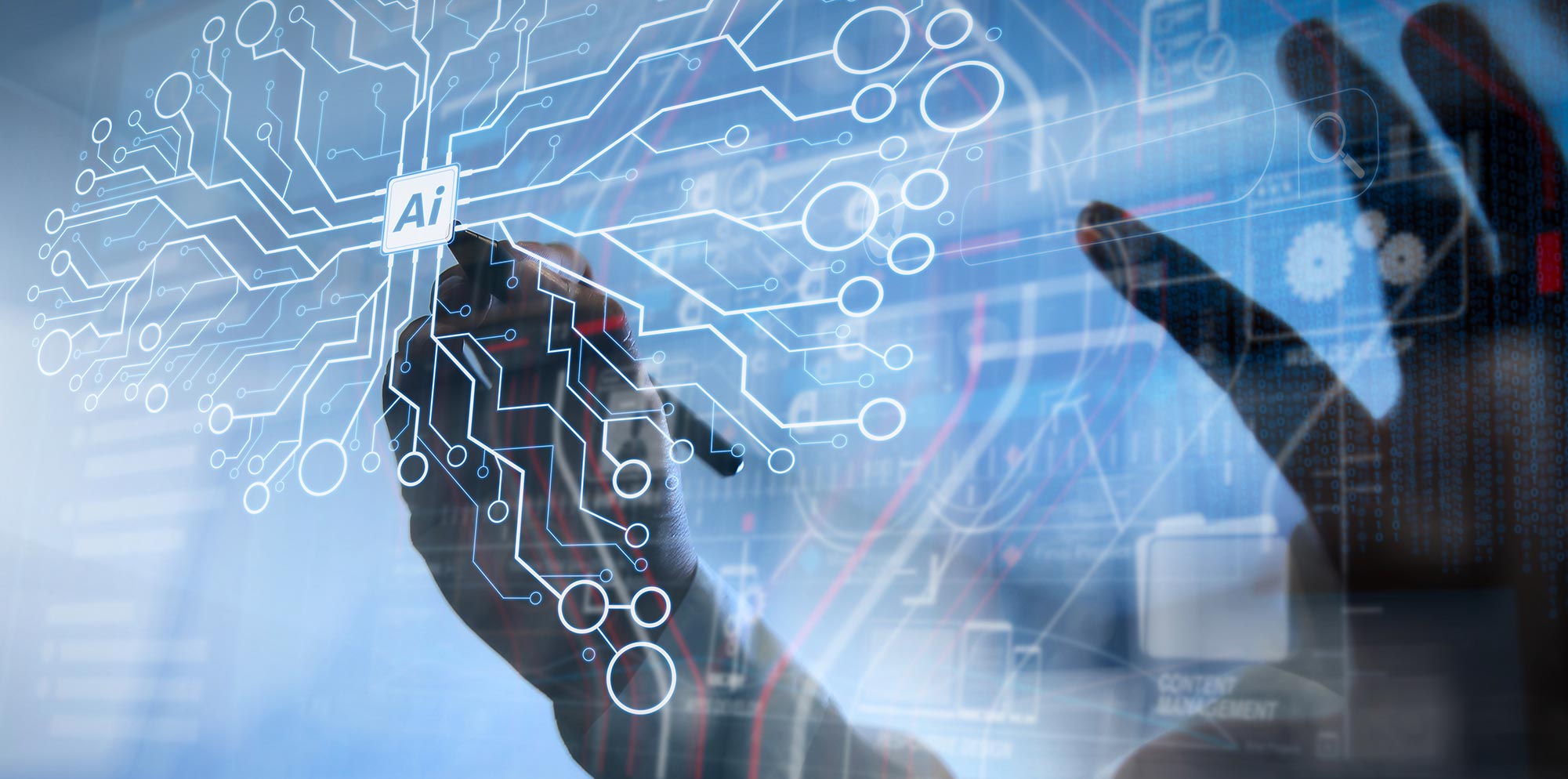
"We are very eager for AI data to become balanced, cleansed, and ensure new AI algorithms are invented to minimize cultural bias," said Dr. Lee.
“AI is becoming smarter than us in many, many ways,” he says. “That's huge. Never has humanity been able to say that. It is why automation will soon take over half of current jobs, so we will have to be liberated from routine work and elevate ourselves to do that which AI cannot do.
“New computing architecture will be trillions of times faster than us, able to compute things that are unimaginable. Life science is allowing people for the first time ever to edit genes and create new life forms, whether that means turning a worm into a fertilizer, making new food for us or making us healthier with the creation of new drugs.
“AI will also create automated algorithms capable of making new batteries which are more effective through simulation, using hydrogen, for example. Imagine if the cost of energy goes down by a factor of 10 – in this region, desalination will become a non-problem.”
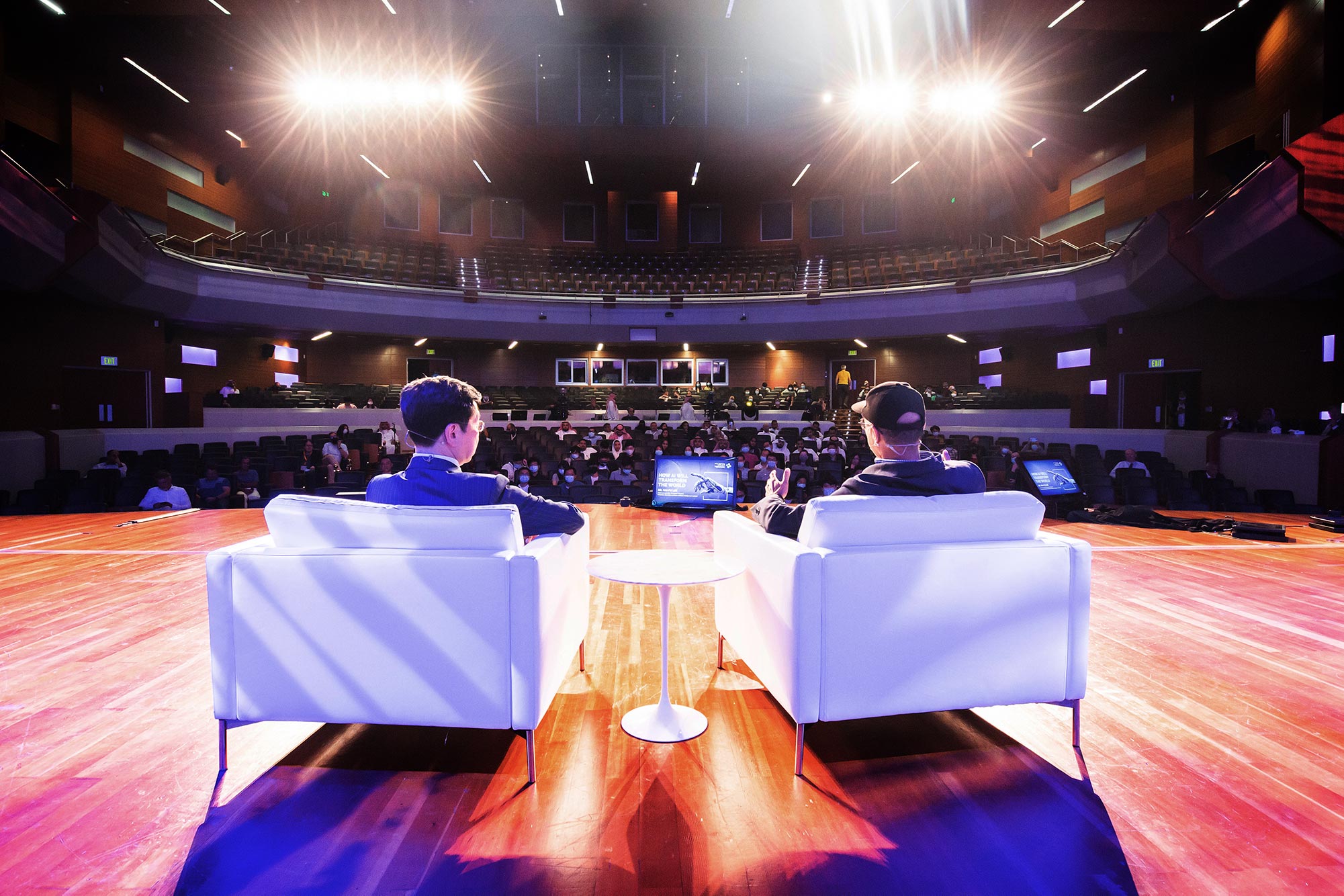
KAUST President Tony Chan and Dr. Kai-Fu Lee during the question and answer period.
Dr. Lee goes a step further, outlining how the integration of AI and automated technologies will bring the cost of everyday goods down to a point where the opportunity to end world hunger will arise.
Indeed, he believes the key lies with people involved with institutions such KAUST, not least because of the fact that its innovative activities align with the country’s wider developmental ambitions in the form of Vision 2030.
“I think that Vision 2030 serves a tremendous purpose regarding future life and the changes we can expect to see, how data can be used to our advantage, how healthcare will change, how the Kingdom will become a leader in technology and transition into new energy,” Dr. Lee continues.
“I think this sort of vision is something every country should strive to adopt, but there are very few painting similar pictures.”
Making AI our own
In terms of making the most out of AI on a regional level, Dr. Lee points to technological ownership as a critical next step.
This is because, in his view, Arabic-speaking nations are being inadvertently underserved by the current dominant forces in AI coming out of Silicon Valley in the US.
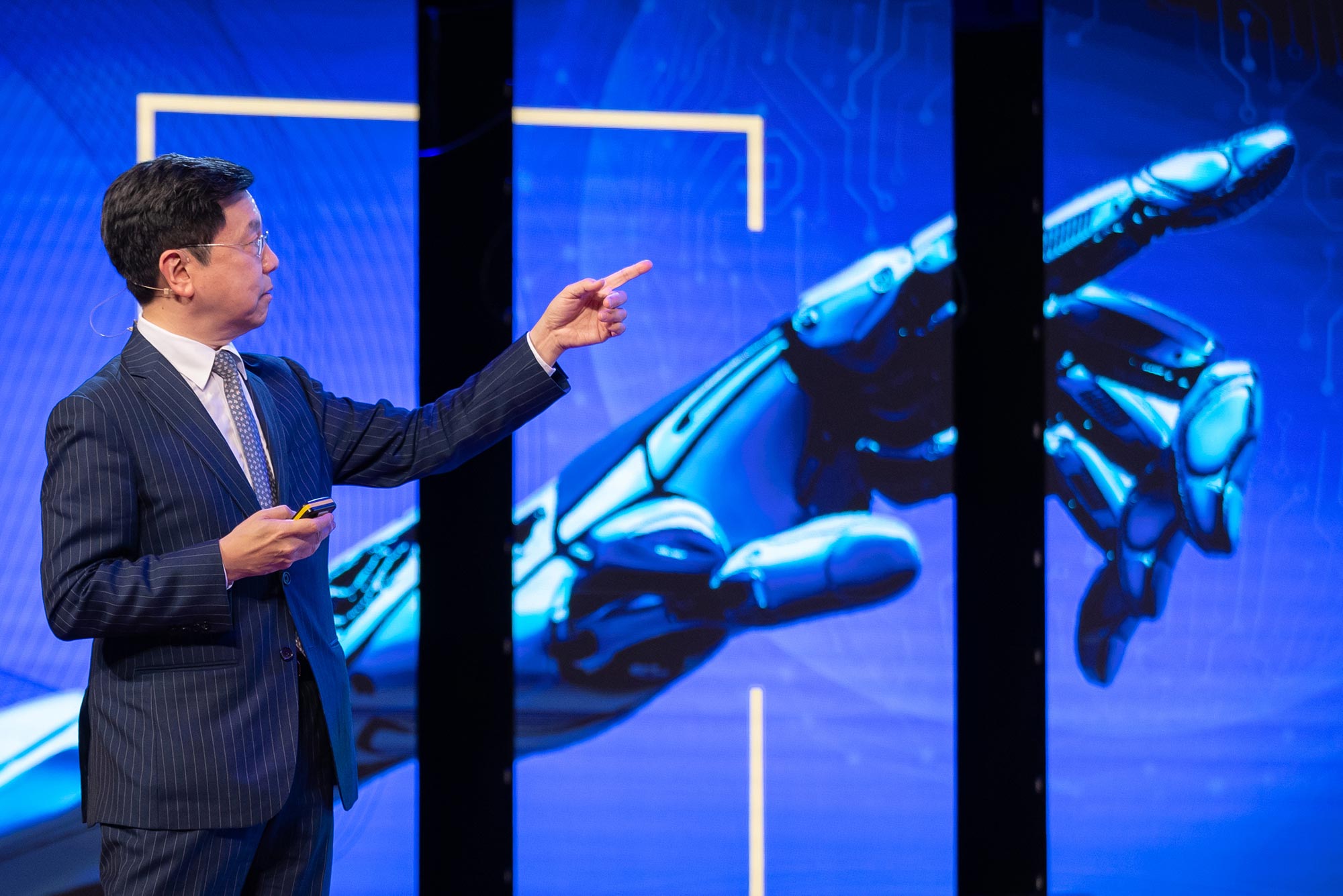
In his book 'AI 2041,' Dr. Lee highlights influential technologies that will be shaping the future
Indeed, rather than rely on technology owned by American firms, Dr. Lee believes the likes of the GCC can follow in the footsteps of his native China, which has built its own solutions after finding itself at a similar crossroads 15 years ago.
Key to this will be attracting and developing talent.
“I worked in Silicon Valley,” Dr. Lee says. “People there are proud, and I think rightfully so, that Silicon Valley cannot be copied. It's an organic combination of the American West Coast, brilliant weather and living, and also amazing universities like Stanford, Berkeley and the serendipity of having had Schlumberger, Intel, Apple build up all these entrepreneurs and VCs.
“What I think the Kingdom is trying to do is to accelerate an innovation ecosystem without the need to wait 30 years for it to organically develop. And China is really the only country that has done that. So even if the Kingdom wants to go it alone, China is a model to study, to learn where it worked and maybe localize and improve in areas which it didn't serve and solve.”
Crucially, based on what he has experienced in Saudi Arabia so far, Dr. Lee believes the foundation of homegrown talent is already here.
He signs off in an upbeat fashion, praising how the likes of KAUST and the government have built an environment that is conducive to innovation, a dynamic that will need to continue if it is to fully exploit the potential of AI and other technologies that are already starting to shape our future.
“Every time I come to visit, I see that young people are so excited about the future of the country,” he says. “I'm looking forward to coming back and seeing even more of that every year.”
Related content
- KAUST launches Lifelong Learning Initiative (LLI)
- Schmidhuber named Director of KAUST AI Initiative
- AI that's built to save lives
- KAUST Associate Professor Xiangliang Zhang talks about artificial intelligence

